The receptionist with brown lipstick showed my son and me into a faultless waiting room, whose centrepiece was a big colour photograph of out-of-focus lavender florets.
A couplet written underneath said:
I’m the colourful leaves when autumn comes around
And the pure white snow that blankets the ground.
Had we made an appointment, she asked. We understood that it wasn’t necessary, we said, and that we could view the body ‘at any time within normal business hours’. She wrestled with her thoughts for a moment, then said she would have to get a man to come over from Torquay to help lift her out of the fridge. ‘Can we help?’ I said. ‘No. No,’ she said. ‘Health and safety, you understand.’ We understood, we said.
While we waited for the man from Torquay, what about a nice cup of coffee, she said. Then she disappeared off somewhere to make it. We sat in silence in the faultless room. We took in the glass cabinet with little alabaster reliquaries for sale and a selection of wicker caskets advertising the fact that wicker caskets came in a variety of colours, including buff, antique buff, cerise pink, dark blue and green. An information leaflet attracted attention with the strong-willed assertion: ‘I want to play “I Did it My Way” at the Funeral.’
The receptionist reappeared sooner than expected. ‘When you are ready you can now go in and pay your respects,’ she said. ‘Surely the man from Torquay hasn’t arrived already?’ I said. ‘She’s a light lady,’ she said. ‘Some are heavy, some are light. She’s light. I did it myself.’ ‘I’ve dimmed the lights,’ she added. ‘But if you want them turned up, please ask. And just to warn you, she’s been here since Friday and she’s very cold.’ ‘She’s always felt cold,’ observed my son, which was true, especially of her last couple of years.
The receptionist led us back through the reception area. Above her desk was a large framed photograph of the sky at night. Underneath was the couplet:
I’ll never wander out of your sight;
I’m the brightest star on a summer night.
Stopping before a plain wooden door, she knocked politely twice, and in a low voice asked the occupant within for permission to enter. ‘I always do that. I don’t know why,’ she said. Ignoring the theatrics, my son and I passed into the dim room while she held the door open for us.
It was another faultless room about eight feet square. Plain brown carpet, dove gray walls. To the right was a low table with a chair at either side. On the table was a small cube decorated with a mosaic of mirrored shapes. It contained tissues. The top tissue was standing up ready to be plucked out. Beside the tissues was a single white artificial rose. On the wall above the table was another framed out-of-focus nature picture. The couplet underneath said:
I am the sunlight on ripened grain
I am the gentle Autumn rain.
We’d driven there through a downpour. Drawing my son’s attention to the picture, I said: ‘Gentle autumn rain? It’s pissing down.’ Then we turned to the plain casket with imitation-brass handles resting on a trolly on the other side of the room. The rude reality of the trolly was disguised by a frilly apron; the casket was open. Inside the cream satin-lined casket lay a small figure dressed neatly in a blue dress. Thickly wound around the neck as if to keep out the cold was a woollen scarf. A string of pearls lay on the chest. If it hadn’t been for the strong smell of formaldehyde, from a distance the overall effect would have been rather soigné.
My son hung back from the casket. He’d already looked from a distance and was dumbfounded. Bearing the responsibility of seniority, I moved in for a closer examination of the face. She had lost none of her old assurance and I expected her to open her eyes at any moment, command my attention and tell me about a little job she wanted doing. But the face wasn’t hers. For half a second I wondered if there hadn’t been some ghastly mistake and quickly referred to the name printed on the plastic wristband. Then I placed my hand on the back of one of hers and found it to be ice-cold, which surprised me almost as much as the face not being hers, in spite of having been warned. ‘That’s not her,’ I pronounced, going back to my normal voice, as if we’d been defrauded. My son nodded judicial agreement with his old man.
And after that we relaxed, threw off the pious masks, resumed our lightheartedness and normal speech, and felt and examined the figure in the casket from a purely technical point of view. It helped a lot, we agreed afterwards, knowing that wherever she might be now, she certainly wasn’t there.
Got something to add? Join the discussion and comment below.
Get 10 issues for just $10
Subscribe to The Spectator Australia today for the next 10 magazine issues, plus full online access, for just $10.
You might disagree with half of it, but you’ll enjoy reading all of it. Try your first month for free, then just $2 a week for the remainder of your first year.


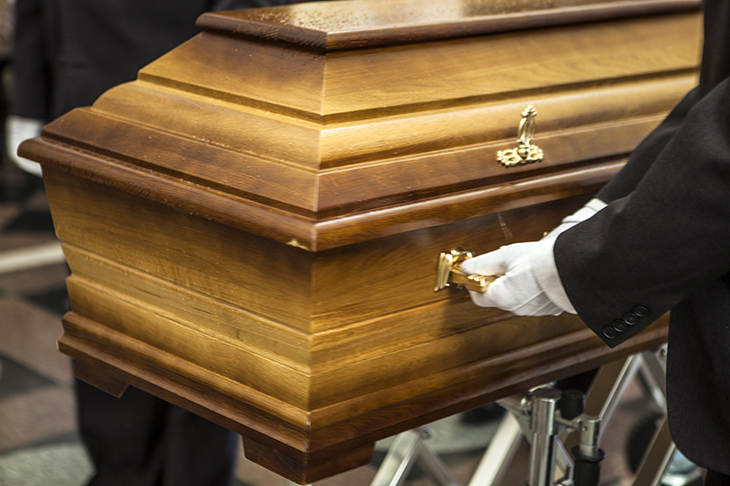
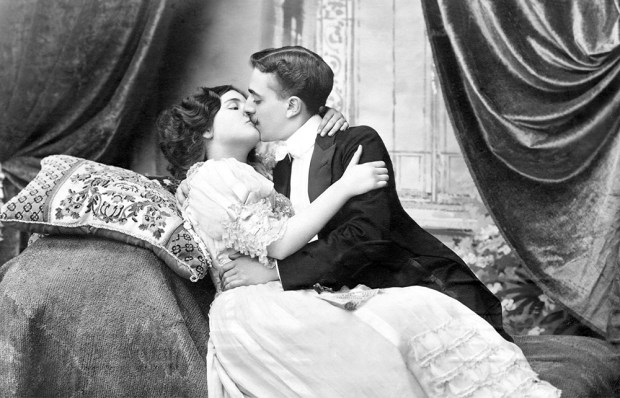
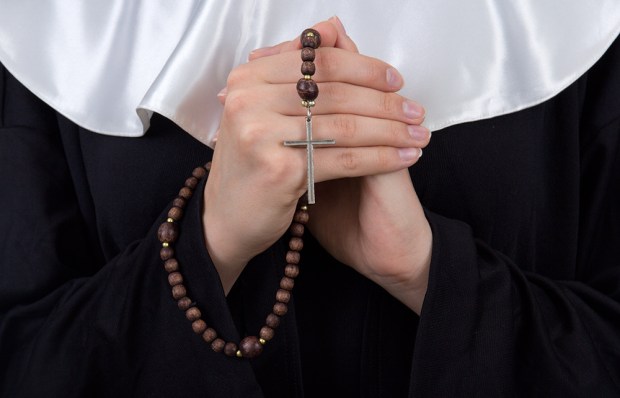


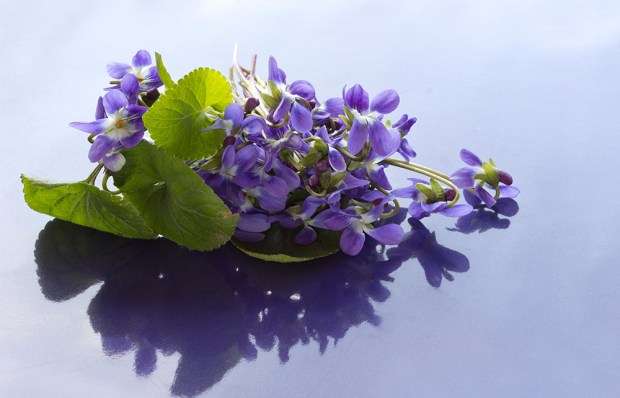
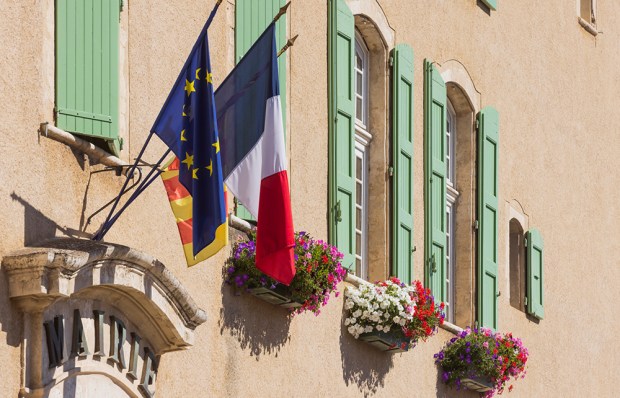






Comments
Don't miss out
Join the conversation with other Spectator Australia readers. Subscribe to leave a comment.
SUBSCRIBEAlready a subscriber? Log in